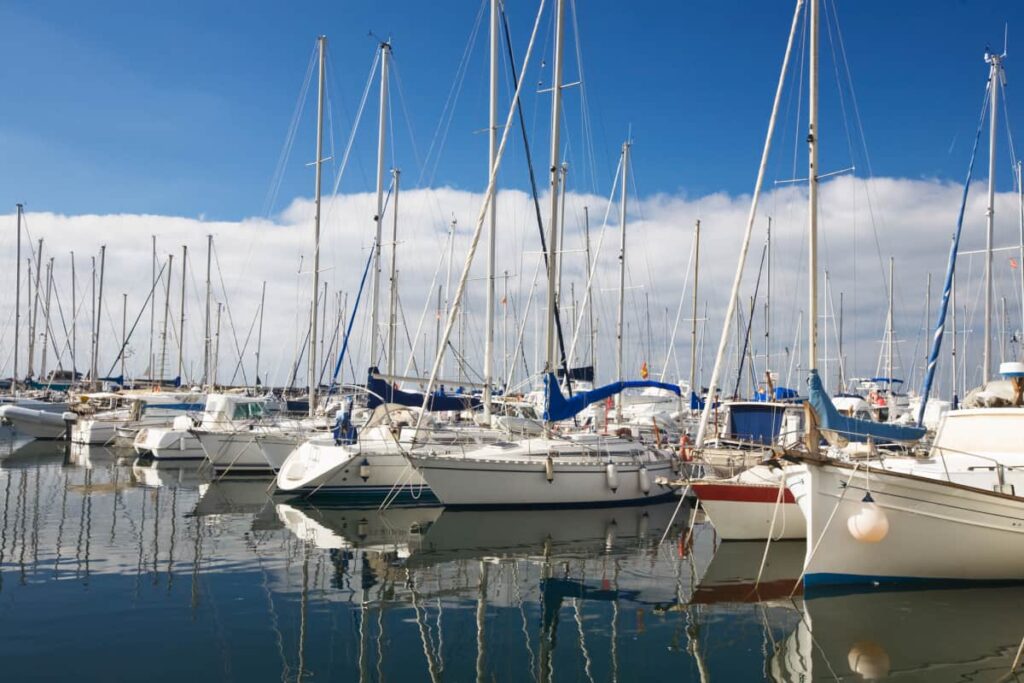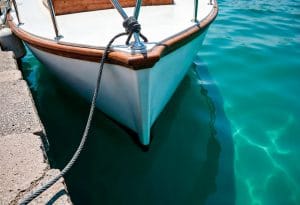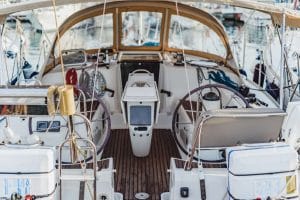Traditionally, the Spanish nautical legislation has been evolving at a forced pace, as navigation practices did: until a few years ago, the law did not contemplate recreational navigation, so this type of boats had to be governed by the classic rules of maritime law. Fortunately, the regulations for recreational boats have been updated in recent years.
What are the most relevant regulations in nautical?
Recreational sailing is governed under the mandate of the Law 14/2014, of July 24, on Maritime Navigation, whose intention is to “overcome the contradictions between the different international conventions in force in Spain and the dispersed regulations that regulate this matter.” That is to say, the norm itself, in its preamble, includes the disparity of normative criteria applicable until that moment to recreational boating.
In addition to the general rule, many Other aspects have been subsequently regulated by Royal Decree, such as nautical qualifications (use of nautical skis, obtaining the PER or regulation of the merchant marine professional qualifications); flagging, registration and dispatch, and the obligation to have mandatory civil liability insurance.
When did the new legislation come into force?
Although the Maritime Navigation Law, as we have already mentioned, was approved in 2014, the last update of the regulation occurred with the entry into force of the Royal Decree 339/2021, referring to mandatory safety equipment and the prevention of pollution of recreational boats.
This standard repeals the mandates of Order FOM/1144/2003, 17 years old, and which determined both the Mandatory safety equipment on recreational boats such as obsolete pollution prevention criteria.

Obligations regarding safety and rescue
The regulations establish new obligations regarding safety, the main of which is the obligation on the part of the owner to keep the rescue equipment, the bailing means and the fire-fighting equipment in perfect condition, as well as taking responsibility to ensure that the maximum number of people allowed on board is never exceeded.
Within the equipment mentioned in the regulations are the lifesaving equipment (vests, hoops and rafts), as well as the distress signals, acoustic signals, lights, mooring lines or any other system that is considered necessary.
Pollution
Pollution regulation refers, especially, to dirty water treatment on ships, and establishes that pleasure boats can never discharge them into the sea, unless they are at a distance greater than 3 nautical miles from the coast or the discharge is carried out outside zone 7 and using a specific waste water treatment facility.
Besides, the rule provides for certain exceptions, whose objective is to guarantee the safety of the vessel and its passengers and solve possible breakdown situations, always taking reasonable precautions.
Area of application
The new regulations do not only affect ships flying the Spanish flag, but their scope of application also extends to any foreign flag vessel whose home port is Spanish or whose owner resides in Spain. In this way, the aim is to prevent recreational boats from registering in countries with more lenient legislation on pollution.

Ship registration
This is a new record that combines the registrations of pleasure boats and nautical motorcycles, unifying all in one place.
Abandoned boats
The abandonment of boats has traditionally been a problem for yacht clubs; with the new standard it will be possible to sell abandoned pleasure boats by creating a notarial file.
Liability insurance
In the same way as with vehicles, with the new standard it is mandatory to have civil liability insurance with coverage for both personal and material damage to third parties.
Are you interested in: What information does the boat registration contain?
Sanctions regime
The law classifies infractions, according to their importance, as minor, serious or very serious, and establishes different fines for each of them, depending on the importance of the offense:
- Minor violations: among others, pollution of the marine environment, lack of necessary documentation on board, or failure to comply with the instructions of the ship's skipper or captain. They may involve fines of up to 60,000 euros.
- Serious violations: this is considered to be those that cause a third party to lose work or material damage of up to 6,000 euros, as well as steering an unregistered vessel, performing maneuvers that endanger the safety of the vessel, using radio equipment inappropriately, have double flag or lack mandatory civil liability insurance. Serious violations may be punished with fines of up to 120,000 euros.
- Very serious violations: this would include the fact of endangering people, the skipper being under the influence of drugs or alcohol, denying the duty to provide assistance, falsifying documents required by the Maritime Authority or contaminating the marine environment and the fines associated with these offenses. They can reach 3 million euros.




